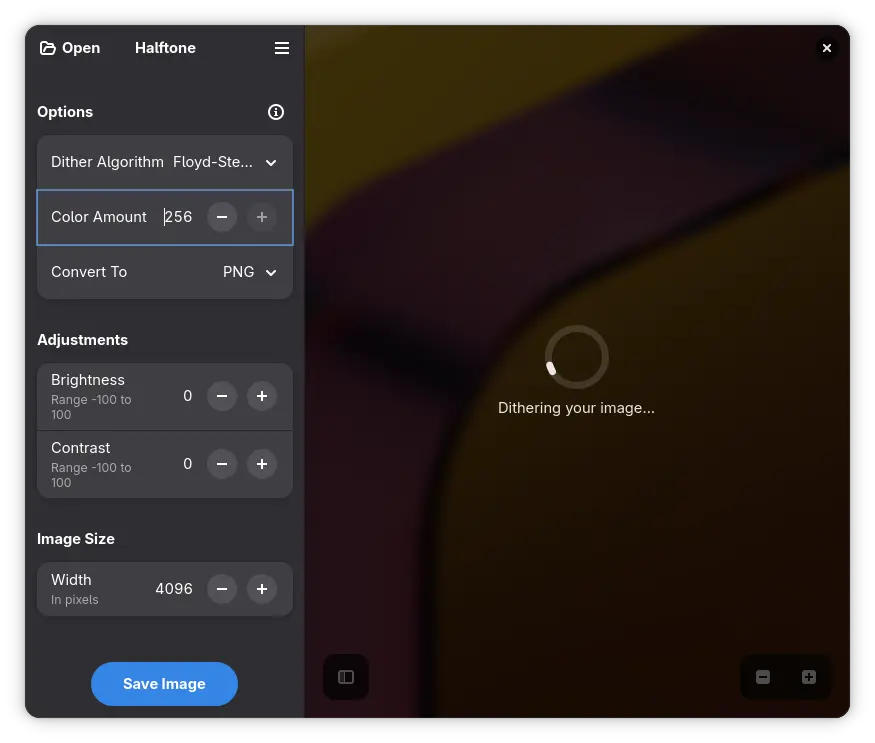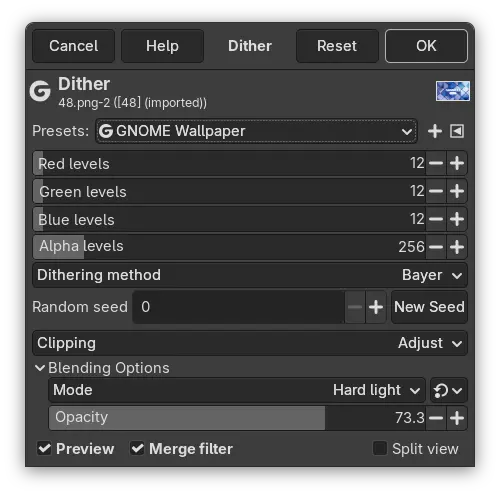I was reading a blog post about the
testing strategy for the Wild
linker
, when I came upon a link to
cargo-mutants
, a
mutation testing tool for Rust. The tool promised to be easy to set
up, so I gave it a try. I'm happy to find that it totally delivers!
Briefly:
mutation testing
catches cases where bugs are
deliberately inserted in the source code, but the test suite fails to
catch them: after making the incorrect changes, all the tests still
pass. This indicates a gap in the test suite.
Previously I had only seen mentions of "mutation testing" in passing,
as something exotic to be done when testing compilers. I don't recall
seeing it as a general tool; maybe I have not been looking closely
enough.
Setup and running
Setting up cargo-mutants is easy enough: you can
cargo install
cargo-mutants
and run it with
cargo mutants
.
For librsvg this ran for a few hours, but I discovered a couple of
things related to the way the librsvg repository is structured. The
repo is a cargo workspace with multiple crates: the
librsvg
implementation and public Rust API, the
rsvg-convert
binary, and
some utilities like
rsvg-bench
.
-
By default
cargo-mutants
only seemed to pick up the tests for
rsvg-convert
. I think it may have done this because it is the
only binary in the workspace that has a test suite
(e.g.
rsvg-bench
does not have a test suite).
-
I had to run
cargo mutants --package librsvg
to tell it to
consider the test suite for the
librsvg
crate, which is the main
library. I think I could have used
cargo mutants --workspace
to
make it run all the things; maybe I'll try that next time.
Initial results
My initial run on
rsvg-covert
produced useful results; cargo-mutants
found 32 mutations in the
rsvg-convert
source code that ought to
have caused failures, but the test suite didn't catch them.

The second run, on the
librsvg
crate, took about 10 hours. It is
fascinating to watch it run. In the end it found 889 mutations with
bugs that the test suite couldn't catch:
5243 mutants tested in 9h 53m 15s: 889 missed, 3663 caught, 674 unviable, 17 timeouts
What does that mean?
-
5243 mutants tested
: how many modifications were tried on the code.
-
889 missed
: The important ones: after a modification was made, the
test suite failed to catch this modification.
-
3663 caught
: Good! The test suite caught these!
-
674 unviable
: These modifications didn't compile. Nothing to do.
-
17 timeouts
: Worth investigating; maybe a function can be marked
to be skipped for mutation.
Starting to analyze the results
Due to the way cargo-mutants works, the "missed" results come in an
arbitrary order, spread among all the source files:
rsvg/src/path_parser.rs:857:9: replace <impl fmt::Display for ParseError>::fmt -> fmt::Result with Ok(Default::default())
rsvg/src/drawing_ctx.rs:732:33: replace > with == in DrawingCtx::check_layer_nesting_depth
rsvg/src/filters/lighting.rs:931:16: replace / with * in Normal::bottom_left
rsvg/src/test_utils/compare_surfaces.rs:24:9: replace <impl fmt::Display for BufferDiff>::fmt -> fmt::Result with Ok(Default::default())
rsvg/src/filters/turbulence.rs:133:22: replace - with / in setup_seed
rsvg/src/document.rs:627:24: replace match guard is_mime_type(x, "image", "svg+xml") with false in ResourceType::from
rsvg/src/length.rs:472:57: replace * with + in CssLength<N, V>::to_points
So, I started by sorting the
missed.txt
file from the results. This is much better:
rsvg/src/accept_language.rs:136:9: replace AcceptLanguage::any_matches -> bool with false
rsvg/src/accept_language.rs:136:9: replace AcceptLanguage::any_matches -> bool with true
rsvg/src/accept_language.rs:78:9: replace <impl fmt::Display for AcceptLanguageError>::fmt -> fmt::Result with Ok(Default::default())
rsvg/src/angle.rs:40:22: replace < with <= in Angle::bisect
rsvg/src/angle.rs:41:56: replace - with + in Angle::bisect
rsvg/src/angle.rs:49:35: replace + with - in Angle::flip
rsvg/src/angle.rs:57:23: replace < with <= in Angle::normalize
With the sorted results, I can clearly see how cargo-mutants gradually
does its modifications on (say) all the arithmetic and logic operators
to try to find changes that would not be caught by the test suite.
Look at the first two lines from above, the ones that refer to
AcceptLanguage::any_matches
:
rsvg/src/accept_language.rs:136:9: replace AcceptLanguage::any_matches -> bool with false
rsvg/src/accept_language.rs:136:9: replace AcceptLanguage::any_matches -> bool with true
Now look at the corresponding lines in the source:
... impl AcceptLanguage {
135 fn any_matches(&self, tag: &LanguageTag) -> bool {
136 self.iter().any(|(self_tag, _weight)| tag.matches(self_tag))
137 }
... }
}
The two lines from
missed.txt
mean that if the body of this
any_matches()
function were replaced with just
true
or
false
,
instead of its actual work, there would be no failed tests:
135 fn any_matches(&self, tag: &LanguageTag) -> bool {
136 false // or true, either version wouldn't affect the tests
137 }
}
This is bad! It indicates that the test suite does not check that
this function, or the surrounding code, is working correctly. And
yet,
the test coverage report
for those
lines shows that they are indeed getting executed by the test suite.
What is going on?
I think this is what is happening:
-
The
librsvg
crate's tests do not have tests for
AcceptLanguage::any_matches
.
-
The
rsvg_convert
crate's integration tests
do
have a test for
its
--accept-language
option, and that is what causes this code to
get executed and shown as covered in the coverage report.
-
This run of cargo-mutants was just for the
librsvg
crate, not for
the integrated
librsvg
plus
rsvg_convert
.
Getting a bit pedantic with the purpose of tests, rsvg-convert assumes
that the underlying
librsvg
library works correctly. The library
advertises support in its API for matching based on AcceptLanguage,
even though it doesn't test it internally.
On the other hand, rsvg-convert has a test for its own
--accept-language
option, in the sense of "did we implement this
command-line option correctly", not in the sense of "does librsvg
implement the AcceptLanguage functionality correctly".
After adding a little unit test for
AcceptLanguage::any_matches
in
the
librsvg
crate, we can run cargo-mutants just for that the
accept_language.rs
file again:
# cargo mutants --package librsvg --file accept_language.rs
Found 37 mutants to test
ok Unmutated baseline in 24.9s build + 6.1s test
INFO Auto-set test timeout to 31s
MISSED rsvg/src/accept_language.rs:78:9: replace <impl fmt::Display for AcceptLanguageError>::fmt -> fmt::Result with Ok(Default::default()) in 4.8s build + 6.5s test
37 mutants tested in 2m 59s: 1 missed, 26 caught, 10 unviable
Great! As expected, we just have
1 missed
mutant on that file now.
Let's look into it.
The function in question is now
<impl fmt::Display for
AcceptLanguageError>::fmt
, an error formatter for the
AcceptLanguageError
type:
impl fmt::Display for AcceptLanguageError {
fn fmt(&self, f: &mut fmt::Formatter<'_>) -> fmt::Result {
match self {
Self::NoElements => write!(f, "no language tags in list"),
Self::InvalidCharacters => write!(f, "invalid characters in language list"),
Self::InvalidLanguageTag(e) => write!(f, "invalid language tag: {e}"),
Self::InvalidWeight => write!(f, "invalid q= weight"),
}
}
}
What cargo-mutants means by "
replace ... -> fmt::Result with
Ok(Default::default())
is that if this function were modified to
just be like this:
impl fmt::Display for AcceptLanguageError {
fn fmt(&self, f: &mut fmt::Formatter<'_>) -> fmt::Result {
Ok(Default::default())
}
}
then no tests would catch that. Now, this is just a formatter function;
the
fmt::Result
it returns is just whether the underlying call to
write!()
succeeded. When cargo-mutants discovers that it can change this function to return
Ok(Default::default())
it is because
fmt::Result
is defined as
Result<(), fmt::Error>
, which implements
Default
because the unit
type
()
implements
Default
.
In librsvg, those
AcceptLanguageError
errors are just surfaced as
strings for rsvg-convert, so that if you give it a command-line
argument with an invalid value like
--accept-language=foo
, it will
print the appropriate error. However, rsvg-convert does not make any
promises as to the content of error messages, so I think it is
acceptable to
not
test this error formatter — just to make sure it
handles all the cases, which is already guaranteed by its
match
statement. Rationale:
-
There already are tests to ensure that the error codes are computed
correctly in the parser for
AcceptLanguage
; those are the
AcceptLanguageError
's enumeration variants.
-
There
is
a test in rsvg-convert's test suite to ensure that it
detects invalid language tags and reports them.
For cases like this, cargo-mutants allows marking
code to be
skipped
. After marking this
fmt
implementation with
#[mutants::skip]
, there are no more missed mutants in
accept_language.rs
.
Yay!
Understanding the tool
You should absolutely read "
using results
" in the
cargo-mutants documentation, which is very well-written. It gives
excellent suggestions for how to deal with missed mutants. Again,
these indicate potential gaps in your test suite. The documentation
discusses how to think about what to do, and I found it very helpful.
Then you should read about
genres of mutants
. It tells you
the kind of modifications that cargo-mutants does to your code. Apart
from changing individual operators to try to compute incorrect
results, it also does things like replacing whole function bodies to
return a different value instead. What if a function returns
Default::default()
instead of your carefully computed value? What
if a boolean function always returns
true
? What if a function that
returns a
HashMap
always returns an empty hash table, or one full
with the product of all keys and values? That is, do your tests
actually check your invariants, or your assumptions about the shape of
the results of computations? It is really interesting stuff!
Future work for librsvg
The documentation for cargo-mutants suggests how to use it in CI, to
ensure that
no uncaught mutants are merged into the code
. I
will probably investigate this once I have fixed all the missed
mutants; this will take me a few weeks at least.
Librsvg already has the
gitlab incantation to show test coverage for
patches
in merge requests, so it would be nice to know
if the existing tests, or any new added tests, are missing any
conditions in the MR. That can be caught with cargo-mutants.
Hackery relevant to my tests, but not to this article
If you are just reading about mutation testing, you can ignore this
section. If you are interested in the practicalities of compilation,
read on!
The source code for the
librsvg
crate uses a bit of conditional
compilation to select whether to export functions that are used by the
integration tests as well as the crate's internal tests. For example,
there is some code for diffing two images, and this is used when
comparing the pixel output of rendering an SVG to a reference image.
For historical reasons, this code ended up in the main library, so
that it can run its own internal tests, but then the rest of the
integration tests also use this code to diff images. The
librsvg
crate exports the "diff two images" functions only if it is being
compiled for the integration tests, and it doesn't export them for a
normal build of the public API.
Somehow, cargo-mutants didn't understand this, and the integration
tests did not build since the cargo feature to select that
conditionally-compiled code... wasn't active, or something. I tried
enabling it by hand with something like
cargo mutants --package
librsvg -- --features test-utils
but that still didn't work.
So, I hacked up a temporary version of the source tree just for
mutation testing, which always exports the functions for diffing
images, without conditional compilation. In the future it might be
possible to split out that code to a separate crate that is only used
where needed and never exported. I am not sure how it would be
structured, since that code
also
depends on librsvg's internal
representation of pixel images. Maybe we can move the whole thing out
to a separate crate? Stop using Cairo image surfaces as the way to
represent pixel images? Who knows!
 chevron_right
chevron_right







